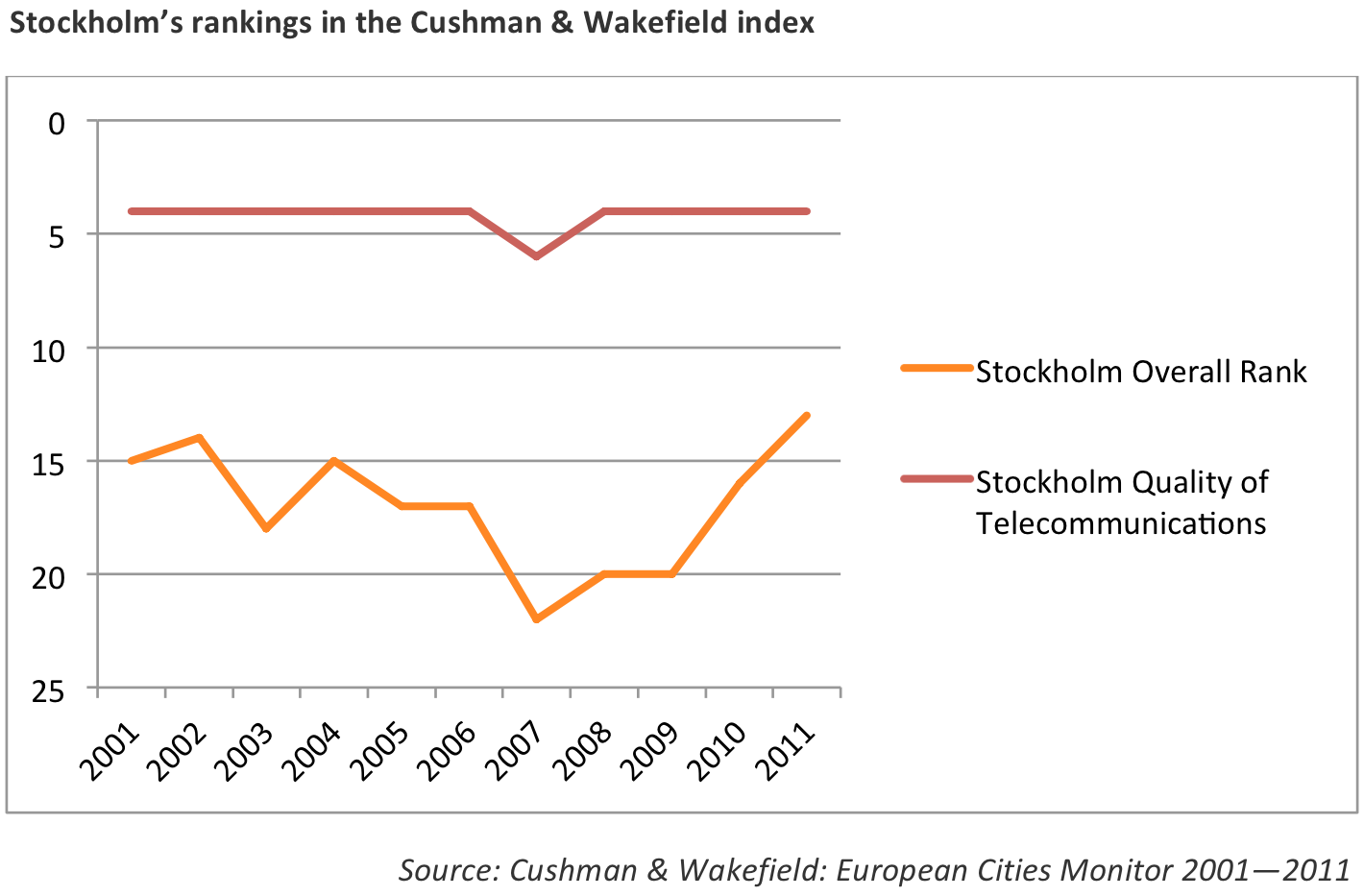In 1994, Stockholm launched a municipally owned passive fibre infrastructure provider called Stoke. The goal: lower network costs, increase competition and minimize disruption to citizens by limiting private operators’ needs for civil works to lay infrastructure in the ground. A few years ago, Diffraction Analysis released a white paper analysing Stokab’s inception, the municipal fibre network and its benefits for the city, focusing on municipal e-services. However, the rise of Smart Cities has led Diffraction Analysis to revisit the study. New research shows how the ubiquitous fibre network has resulted in connectivity driven opportunities to reinvent the urban environment. It seems that having some measure of control over and understanding of the underlying network makes it easier for municipalities to support Smart City developments.
“Stokab sells dark fibre on a non-discriminatory basis and is seen as a kind of public service utility by the City Council,” explains Benoit Felton, founder of Diffraction Analysis. “The network was initially financed by city-backed loans and mainly connected public institutions and universities. Soon, private businesses began purchasing dark fibre circuits from Stoke and the network expanded. Around 2002, deployment extended into residential buildings. Today, roughly 90% of all Stockholm’s households and nearly all companies are connected by fibre with peak access speeds of up to 1 Gb/s.
Significant positive benefits
“Although effects cannot be accurately quantified, the consensus is that Stokab has generated significant positive benefits to the local economy. The city has been using fibre connectivity to reduce costs as well as launch numerous e-services. Stockholm has also launched an open data initiative enabling third-party developers to build new services using its data. Stockholm’s place in the international rankings of capital cities most friendly to businesses has steadily increased over the last decade. Its status as a tech hub and a location with state-of-the-art telecom infrastructure has often been recognized. Many tech companies have established their HQ or R&D centres in Stockholm. The city has also seen the birth of many tech companies, such as Skype and Transcode, that have gone on to become big players in their respective industries. The common passive infrastructure layer Stokab provides is now providing a basis for Smart City approaches. With numerous ambitious pilots in place, the Stockholm aims to be one of the world’s most connected, eco-conscious cities.”
A variety of Smart City projects are underway, ranging from smart public lighting electricity management, waste heat recovery, traffic management, mobility solutions and eco-conscious building logistics. Kista Science City has launched a project called Urban ICT Arena to test the potential of Internet of Things connectivity in an urban environment. The Elderly Care Administration of the City of Stockholm will test elderly home care services to 20 fibered homes in the city at the end of the year.
Success factors
The study lists a number of factors that can be regarded as contributing to the success of Stockholm’s approach to fibre: political consensus, a public infrastructure mind-set that factored in the time to ROI, gradual deployment that allowed for early cash-flow generation, limitations that ensured the provider wouldn’t compete directly with customers and non-discriminatory and transparent pricing policies.
“These aspects could be replicated elsewhere, which makes Stokab a potentially interesting blueprint for fibre infrastructure deployment by local governments,” adds Benoit. “In Tier2 cities, where corporate demand is still largely unmet, this model could be particularly easy to apply.”
Stokab Helps Build a Smarter Stockholm
Download a copy of the White Paper free of charge. This covers the material presented in the original paper as well as the approach to a Smart City Stockholm is taking, pilots it has launched and the role of the municipal network.
Stokab leases fibre optic networks to telecom operators, businesses, local authorities and organisations. Leasing agreements are structured on favorable terms to encourage IT development and strong growth in the Stockholm region. The 90-employee company has a turnover in 2014 of some €73 million, 900 customers and strong growth from the perspectives of both network expansion and revenue.
www.stokab.se



